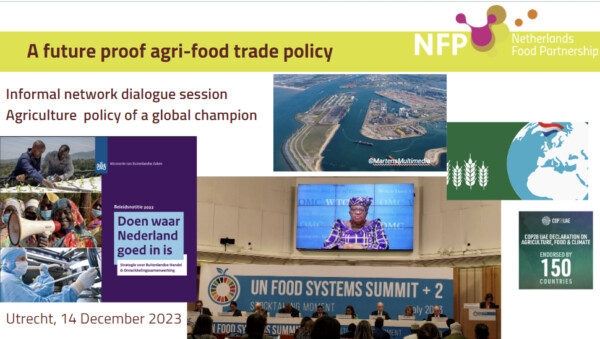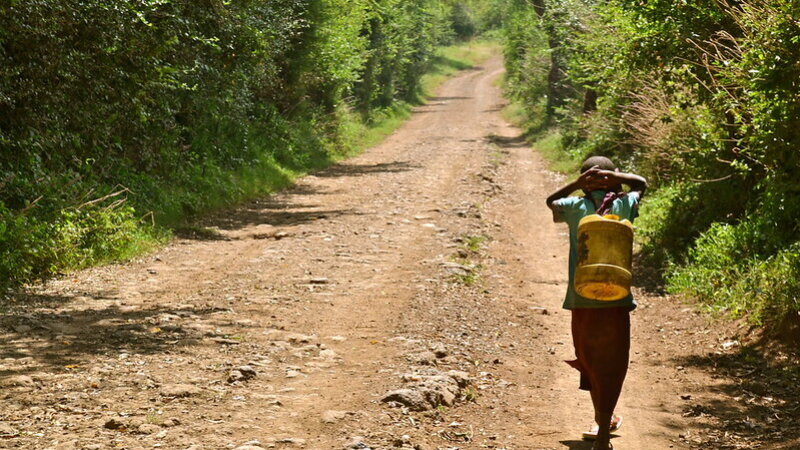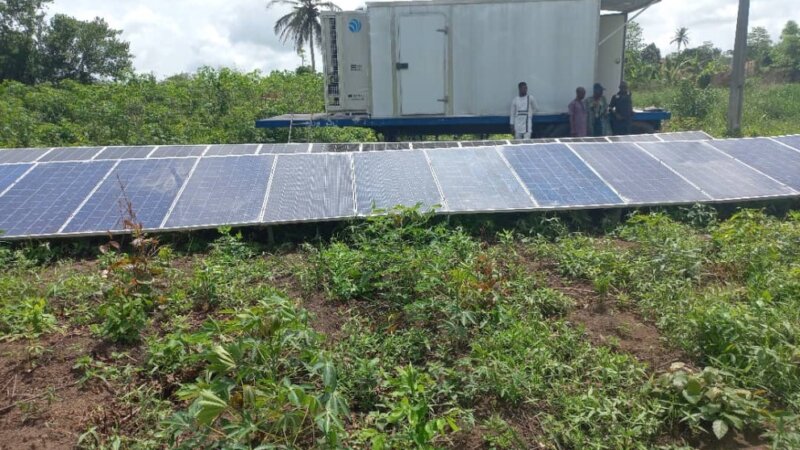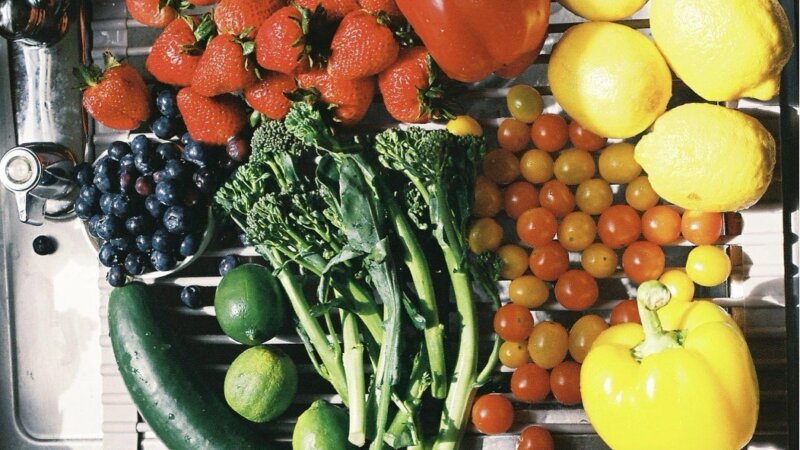Insights from the network dialogue session "A future proof agri-food trade policy"

While Dutch policies on the Dutch Food System are still under debate due to the unsuccessful national policy negotiations (Landbouwakkoord), the international aspects are pivotal to moving the policy agenda forward. To contribute to open dialogue on these aspects of Dutch policy, NFP has taken the initiative to convene a series of independently facilitated stakeholder dialogues to collect and share insights for policies that effectively contribute to the overarching agenda of fostering the sustainability (economic, ecological, and social) of food systems and food and nutrition security. The dialogues are aligned and connected to the Dutch policy for Global Food Security, which the Ministry of Foreign Affairs and Ministry of Agriculture, Nature and Food Quality developed in 2019 and re-affirmed in 2022.
*Please note that the session was Chatham House rule and take aways are not always shared/agreed upon by the participants*
Key takeaways highlighted during the session:
Fostering Inclusive and Sustainable Trade Policies in LMICs:
- Strengthening trade legislation at country level is essential for fostering inclusivity and resilience of the domestic and regional food system.
By strengthening national capacities on trade policy making and negotiations
- Prioritising value addition in LMICs is key to strengthening the earning capacity of agri-food sectors in these countries and to improve their position in international markets.
This needs investment, knowledge sharing and support regarding food quality and safety standards.
And, changing current trade agreements where import tariffs of processed goods are higher than unprocessed goods.
Navigating Imports and Exports: Shaping Sustainable Global Agri-food Markets:
Keep the dialogue and knowledge sharing moving forward on the significance of imports and exports from the Netherlands/Europe in promoting resilient food systems in LMICs.
The Netherlands, as an important trade partner, has a responsibility in the global agri-food market and the broader system. In that context, the Netherlands needs to be critical about the impact of European and Dutch trade policy (and practice) in third countries. Externalities need to be reflected in prices; if that is done, the market ‘can do its job’.
Balancing Trade-Offs and Political Dynamics:
Acknowledgment of the pivotal role of robust agricultural policy interventions in achieving SDG2, with a focus on both mid-term and long-term perspectives.
Further explore the discourse surrounding trade-offs related to agri-food export policies and advocating for inclusion of representation from people within LMIC countries by stakeholders to address diverse interests among producers and consumers.
Caution is needed against the adoption and/or perception of double standards in EU political engagement, particularly in LMICs, and recognising the need for coherent policies and equality in current and future relationships.
Introduction
Ivo Demmers, Executive Director of the Netherlands Food Partnerships, opened the session on 14 December by highlighting that it is a challenging time for global food security. However, COP28 also showed broad recognition that the international community needs to step up, at the interface of climate change and food systems. Trade is among the key areas where the Dutch agricultural sector is connected to neighbouring countries, the EU, and all countries in the world. Within this dynamic environment, trade emerges as a pivotal topic, shaped by evolving factors such as European regulations, African regional trade policies, and socio-economic changes influencing product demand.
Update by the Ministry of Agriculture, Nature and Food Quality (LNV)
Ralf van de Beek, Director for International Agribusiness and Food Security at the Ministry of Agriculture, Nature and Food Quality, shared an update about the preparations of the policy note on the Ministry’s international policy. He explained that the policy is expected to provide direction to the bilateral and global relations of the Netherlands in the domains of Agriculture, Nature and Food Quality, in connection with the national policy strategy under development. While the outgoing Minister of Agriculture, Nature and Food Quality prepares the sending of the policy note to parliament the conversation with stakeholders from the agri-food sector continues. Specifically focussing on identifying opportunities for the effective implementation of the key policy directions. This dialogue session is most appreciated by the Ministry for this reason.
Insights shared by IDH
Marcel Vernooij, Director Public Sector Engagement, IDH, presented key insights on the Netherlands’ pivotal position in global trade, showcasing its market power to promote sustainable production worldwide.
The Netherlands’ pivotal position in global trade; a potential market power to promote sustainable production worldwide. NL holds a dominant position in trade within the EU, second only to Germany. It constitutes over 3-4% of global trade, and its trade volume proportionally surpasses that of its domestic production. For example, NL ranks as the fifth-largest exporter of vanilla while production is negligible. Additionally, NL holds the position of the largest exporter of cocoa powder, processing it domestically. There is recognition of the strengths in the Dutch export position, sustainability standards, and potential for transformative impact in trade. However, there is first a need for a better understanding of the importance of trade for the Dutch economy, NL's role in global trade, and the potential adverse effects of EU measures on smallholder farmers and SMEs. As well as, improved cooperation between NL and its trade partners to achieve sustainability goals. |
Insights shared by Both Ends
Karin van Boxtel, Co Interim Director, Both ENDS highlighted the importance for trade that works for farmers & food systems transformation. See more on their presentations in the boxes below.
Trade that works for farmers & food systems transformation To transform food systems we need to address issues such as the redistribution of power and ownership, staying within planetary boundaries, building resilience, promoting food sovereignty, and regionalising food systems. To ensure a trade system that genuinely works for food systems transformation, a vision and pioneering role for the Netherlands are proposed. This entails examining and reforming national agricultural policies, considering the country's position in the EU, addressing subsidies, and recognising the role of powerful entities. By empowering civil society, inducing systemic changes in public institutions, and making transformative practices the norm directly involving a Global South perspective, to establish a trade system that works for food system transformation. |
Insights from the Break out sessions: LMIC’s (Africa), Export, Import
After the presentations, participants formed focused discussion groups with a specific emphasis on LMICs. The following are key insights gleaned from the four breakout group discussions:
Breakout 1: Optimising conditions for local and regional trade.
What can the Netherlands do better/more, to foster improved agrifood trade policies and trade policy implementation in LMIC countries and (sub) regions?
Fostering opportunities to boost earning capacity in the agriculture sector and value chains within LMIC. E.g. realising improvements in food processing / industry, in which value added can be created for the local actors.
Make sure governments are capacitated to develop trade policy mechanisms that work for sustainable food systems.
Foster greater food sovereignty as a principle, turning it into action. Not necessarily by closing the markets/ protectionism, but still including mechanisms that can be used by countries to protect their own sectors in a differentiated mode if that is needed.
Reflect on particular domains where protection mechanisms need to be explored / installed / or implemented better. E.g. for local seed varieties, local crops.
Reflect on the way Europe sets conditions to imported products. Are the conditions necessary for consumer protection, or are the conditions more than that, i.e. inspired by market politics.
Smallholder farmers production: a big part of the actual agricultural sector and production in LMICs. Make sure their influence on decision making is improved, e.g. on the market prices for their crops. No unexpected shifts
Breakout 2: Exports from the Netherlands/ Europe and their relevance for improved LMIC food systems.
What is the vision on future-proof exports, and what are the preconditions for these exports to become more sustainable?
Let the market do its job, but on condition that all external costs are integrated. A positive impact of exports needs to be seen for LMIC producers and consumers, including for LMIC food self-sufficiency and local value addition. Harmful effects in the Netherlands or elsewhere related to the exported produce need to be prevented.
Trade-offs related to agri-food export policies need to be discussed and addressed through meaningful participation. Be aware of the different interests of both producers and consumers, and of the fact that no one size fits all.
Policy coherence in the domain of trade is an effective and efficient form of international development cooperation. The Netherlands should proactively invest in making its own agriculture (more) sustainable, from volume to quality, while focusing on long-term transitions.
A robust trade policy works when export opportunities exist in a broad network of trade partner countries. Exports and imports are two sides of the same coin, so keeping borders open has advantages. Resilience is more important than efficiency
Breakout 3: Imports to the Netherlands/Europe and their relevance for improved LMIC food systems
What are the preconditions for these imports to become more (economically, socially and environmentally) sustainable?
Achieving SDG2 requires robust agricultural policy interventions with mid-term and long-term perspectives. Today, markets tend to focus on the short term only.
Dutch domestic production should depend less on land use in third countries, the number of off-shore hectares per unit of domestic production should be reduced. Instead, more attention to regional production and circular agriculture.
The European Deforestation Regulation (EUDR) is an example of how small farmers or farmer cooperatives may be pushed out of the market. They risk losing access to the EU Market, if they cannot meet the technically complex requirements of EUDR. Currently, supportive measures are lacking to address this challenge, and the private sector doesn’t take its responsibility. At the same time, countries exporting to the EU have their sovereign responsibility to meet the required standards.
The Netherlands, as an important trade partner, needs to be more critical about the impact of European and Dutch policy in third countries. The impact of trade in important commodities may be regulated via tariffs (e.g. maintaining soya import tariffs - promotes circular agriculture - and reducing import tariffs for processed commodities from LMICs).
Follow up & additional info
In the closing session, a need for a better understanding of international trade policy instruments was identified, of European trade policy and about the World Trade Organisation’s (WTO) regulatory framework. NFP is exploring the possibility of organising specific knowledge sessions on this topic as well as other related topics.
This session marked the first of a series of three dialogues on Dutch agricultural policy with an international focus. The series builds on the earlier conversation with our network partners on the role of the Netherlands’ agriculture policy in the global landscape. A topic put on the agenda through the Agriculture Manifesto , signed by over 70 Dutch and international organisations, companies and scientists.
Interested to join the next session? Let us know via this form.
For further reading materials on this topic see here:
- Agriculture Policy of a global champion -
reading materials - Global Forum for Food and Agriculture: Food Systems for Our Future: Joining Forces for a Zero Hunger World
- OEFSE - A Just and Green CAP and Trade Policy in and Beyond the EU
Stay updated about related topics and events on our community page.
Author

Ruth van de Velde
Partnership Builder




